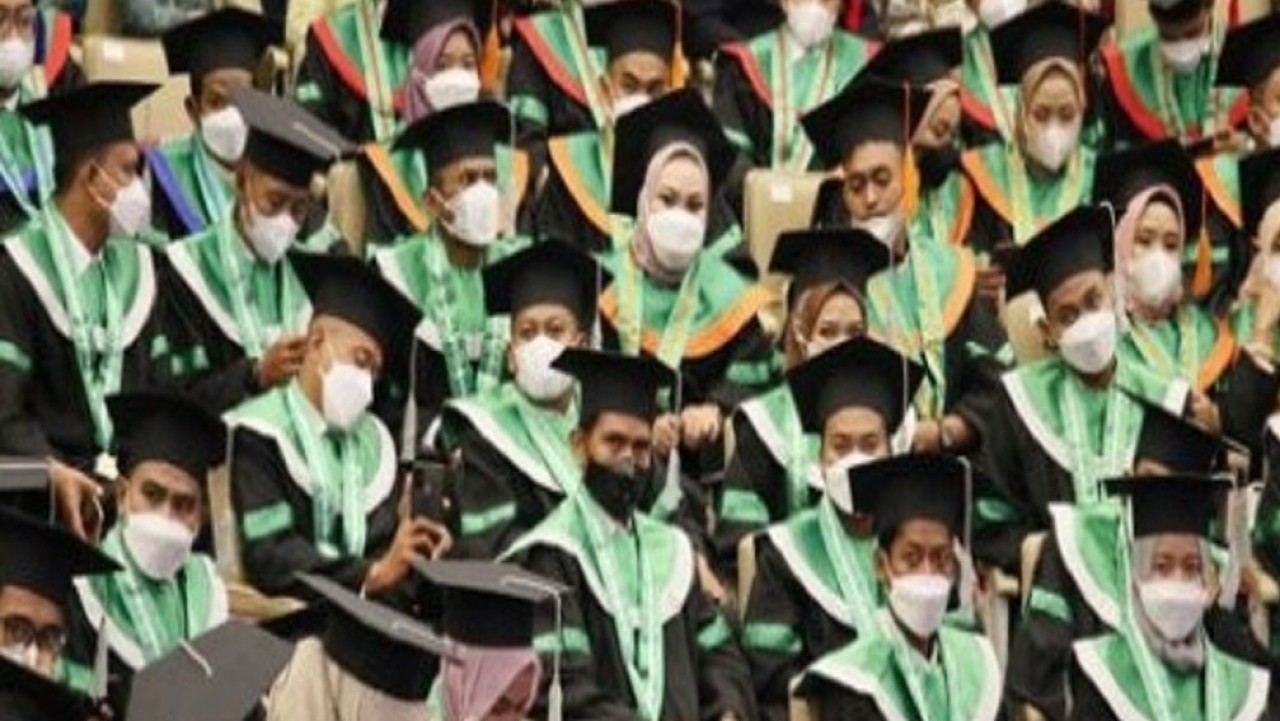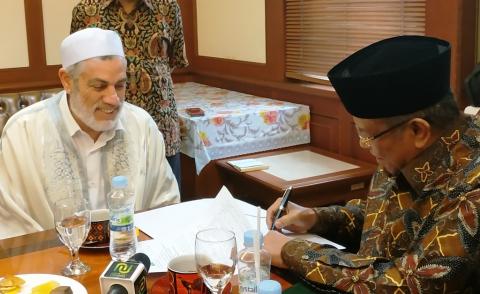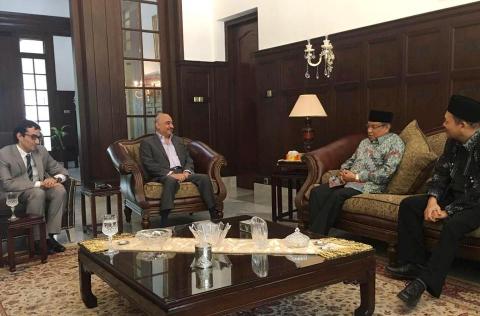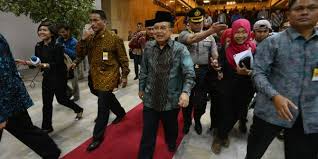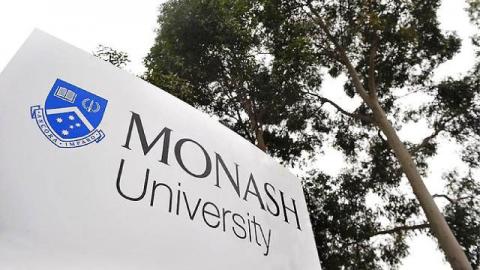Unusia graduates encouraged to strengthen religious moderation
NU Online · Kamis, 20 Januari 2022 | 15:05 WIB
Jakarta, NU Online
Secretary to the Coordinator of Private Islamic Religious Universities (Kopertais) I of Jakarta and Banten H Supriyadi Ahmad attended the 8th Graduation ceremony of the Indonesian Nahdlatul Ulama University (Unusia) at the Sasono Langen Budoyo Building, Taman Mini Indonesia Indah (TMII) Jakarta, on Thursday (20/02). 1/2022).
On that occasion, Supriyadi congratulated the 313 Unusia students inaugurated as graduates. He also gave hope and message to the graduates who would enter into the life of society in the future.
"Since the Ministry of Religious Affairs is currently strengthening the implementation of religious moderation, graduates must be able to implement religious moderation in the midst of society," Supriyadi hoped.
He explained that what was moderated was not the Qur'an and hadith, but the religious practices. The interpretation of the verses of the Qur'an and hadith is expected to be implemented moderately.
“Not extreme, but not rigid either. Not radical, but not passive either. This is the meaning of religious moderation. Students who graduated today, of course, will be involved in the community. Maybe you will become academics, businessmen, entrepreneurs, but in practicing religious values you have to be moderate. You can't be radical," said the lecturer at the State Islamic University (UIN) Syarif Hidayatullah Jakarta.
According to him, NU, which is known as the largest religious organization in Indonesia, has always practiced moderate religious values. He emphasized that NU was not extreme and not rigid.
“Become a scholar who is useful for the people, the nation, the country. Don't be passive. In society, you are awaited. Your gait is needed to be active human beings. But again, don't be radical. Don't blame other people who probably have no the same religion as ours. You can't blame or disbelieve others who may not be the same as us in their religious way," Supriyadi hoped to the Unusia graduates.
"Maybe they have different schools of thought, because the schools are also diverse and it gives us the freedom to practice religious values moderately" he added.
He also hoped that Unusia graduates could fight for religion, homeland, nation and state. Because their role is awaited by many parties, including people who are currently suffering from the Covid-19 pandemic.
Supriyadi advised, when you enter the community, there is something that needs to be understood from the teachings of Islam. He mentioned that Islam contained two categories of teachings. The two are qath'iyyat and zhanniyyat. Qath'iyyat, he explained, was a normative teaching because it is contained in sacred texts, namely the Qur'an and hadith.
For example, he quoted a hadith thalabul ilmi faridhatun ala kulli muslimin wal muslimat (seeking knowledge is obligatory for every male and female Muslim). Furthermore, he also recited QS Al-Mujadalah 11.
"Those who are knowledgeable like you will all be raised in rank by Allah by several degrees compared to those who have no knowledge. This means that seeking knowledge is mandatory. It is qath'iyyat, part of the text of the Qur'an and hadith which is understood as an obligation for us. No one argues that seeking knowledge is not mandatory," said Supriyadi.
However, the method or process of seeking knowledge is zhanniyat, which is always changing, over time. He gave an example of changes in the way of seeking knowledge from time to time, especially before and during the Covid-19 pandemic.
In the past, the way to seek knowledge was through face-to-face meetings. For example, in a pesantren where kiai and santri meet each other, using the sorogan method. But currently, the entire learning process is carried out virtual or through distance learning (PJJ).
"The way of seeking knowledge changes according to the times, it is an Islamic teaching known as zhanniyat or historicity," explained Supriyadi.
He reminded that the world was currently entering the era of society 5.0, and Indonesia is no exception. In this era, people have to interact virtually.
"Let's start the era of society 5.0 from our beloved campus, from Unusia," he said.
It is known, Unusia has graduated 313 graduates with diploma, bachelor's, and master's degrees. They are from six faculties and 18 study programs. The graduates had previously been declared graduated from the graduation ceremony in 2020 to 2021. However, due to the Covid-19 pandemic, Unusia only held a graduation procession this year.
Reporter: Aru Lego Triono
Editor: Sudarto Murtaufiq
Terpopuler
1
KPK Tetapkan Wamenaker Immanuel Ebenezer dan 10 Orang Lain sebagai Tersangka Dugaan Pemerasan Sertifikat K3
2
LF PBNU Rilis Data Hilal Jelang Rabiul Awal 1447 H
3
Istikmal, LF PBNU: 1 Rabiul Awal 1447 Jatuh pada Senin, Maulid Nabi 5 September
4
Pacu Jalur Aura Farming: Tradisi dalam Pusaran Viralitas Media
5
KPK Beberkan Modus Pemerasan Sertifikat K3 yang Berlangsung Sejak 2019
6
IPNU-IPPNU dan PCINU Arab Saudi Dorong Tumbuhnya Tradisi Intelektual di Kalangan Pelajar
Terkini
Lihat Semua

